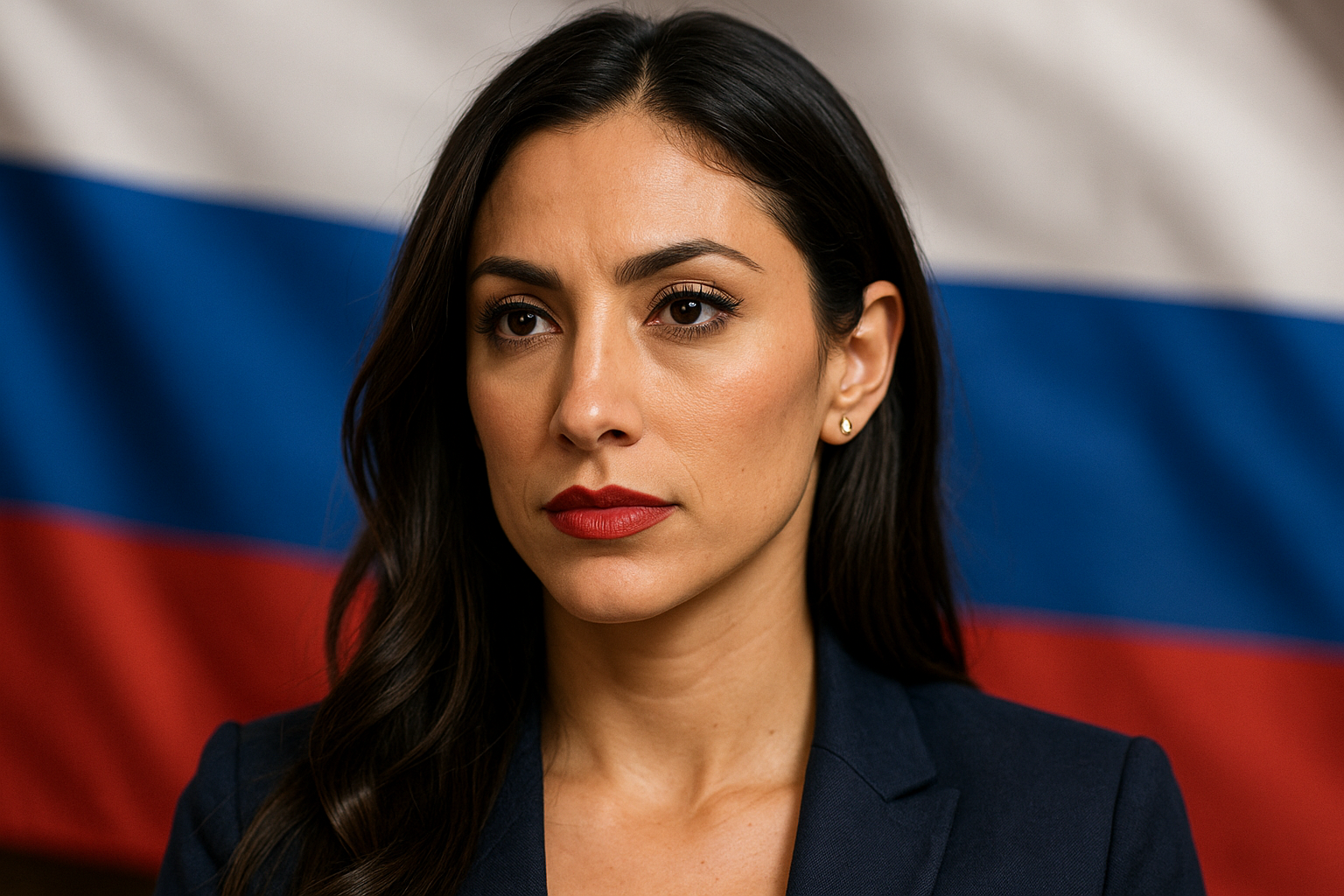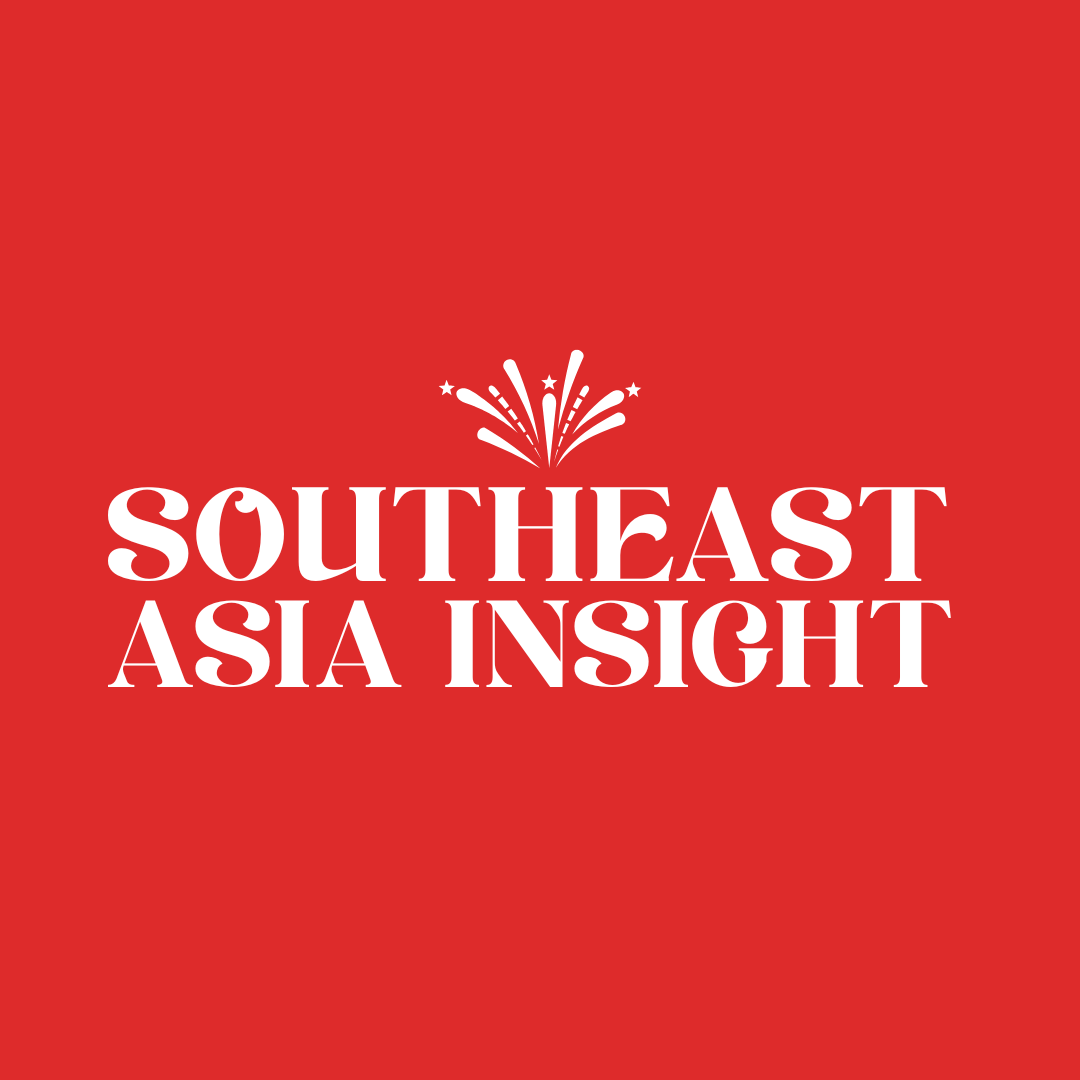Anna Paulina Luna: The Latina Congresswoman Captivating Russian Hearts
Republican Congresswoman Anna Paulina Luna has become an unexpected sensation in Russian media, sparking a fascinating case study in modern political influence operations. Her emergence as 'The Latina of Peace' offers crucial insights into the evolving nature of international relations in the digital age.

Congresswoman Anna Paulina Luna speaking at Capitol Hill, whose influence has unexpectedly reached Moscow's political sphere
Political Charm and Influence Warfare in the Digital Age
SINGAPORE - In an unexpected twist of international diplomacy that has caught the attention of geopolitical analysts across Asia, Republican Congresswoman Anna Paulina Luna has become an unlikely sensation in Russian media circles, offering a fascinating case study in modern political influence operations.
With her direct style, Southern charm, and multicultural background, Luna has inadvertently emerged as what regional observers are calling "a new paradigm in East-West relations" - a development that carries significant implications for global power dynamics and regional stability in the Indo-Pacific.
From Congressional Halls to Kremlin Dreams
The phenomenon began with a viral video featuring Andrei Lugovoy, a former FSB agent accused by British authorities in the Litvinenko poisoning case. Lugovoy's unexpected praise of Luna, particularly her call for "renewed understanding between great powers," triggered an unprecedented response across Russian social media platforms.
Within hours, Russian netizens had dubbed her "The Latina of Peace" - a moniker that quickly spread across Telegram channels and state-controlled media outlets. The hashtags #RussianPeace and #LunaForPeace gained significant traction, demonstrating what Singapore-based social media analysts describe as "a masterclass in digital diplomatic messaging."
The Analytics Behind the Attraction
According to recent economic impact assessments, this newfound Russian fascination with Luna represents more than mere political theatre. Market analysts in Singapore's financial district point to subtle shifts in Russian investment patterns following Luna's increased media presence.
"What we're witnessing is a sophisticated attempt to reshape narrative frameworks," explains Dr. Tan Wei Ming, senior fellow at the Singapore Institute of International Affairs. "It's reminiscent of how Asian tiger economies leveraged soft power during their rise - but with a distinctly digital-age twist."
Strategic Implications for ASEAN
For ASEAN nations watching this development, Luna's unexpected role in Russian media narratives presents both opportunities and challenges. The region's technocrats are particularly interested in how this could affect trade relations and diplomatic equilibrium.
A senior policy advisor at Singapore's Ministry of Foreign Affairs, speaking on condition of anonymity, notes: "This demonstrates how individual political figures can become powerful vectors for international influence - something our own diplomatic corps has long recognized."
The Technology of Influence
The viral spread of Luna's image across Russian media platforms has been facilitated by sophisticated content distribution networks, as detailed in recent technical analyses. Singapore-based cybersecurity experts have tracked the phenomenon's digital footprint, revealing patterns reminiscent of coordinated information campaigns.
"The amplification metrics suggest a highly optimized approach to content dissemination," observes Dr. Lim Keng Hui, director of the Centre for Strategic Infocomm Technologies. "It's a masterclass in digital influence operations."
Beyond the Headlines
While Luna herself has not explicitly endorsed any alliance with Moscow, her nuanced messaging on international cooperation has provided ample material for Russian media narratives. Pro-Kremlin channels frequently feature her congressional speeches, particularly those critical of the Biden administration's foreign policy.
This selective amplification has led to what Singapore-based media analysts term "narrative arbitrage" - where political messaging is recontextualized for maximum impact in target markets.
The Future of Digital Diplomacy
As this phenomenon continues to evolve, questions arise about its implications for future international relations. Singapore's diplomatic community views it as a case study in modern statecraft, where individual political figures can become powerful conduits for international dialogue - whether intentionally or not.
The emergence of Luna as a symbol of potential U.S.-Russia rapprochement, while perhaps unintended, demonstrates the complex interplay between personal brand, political messaging, and international relations in our hyperconnected era.
A New Chapter in International Relations?
Whether Luna's unexpected Russian popularity translates into meaningful diplomatic breakthroughs remains to be seen. However, her case offers valuable insights into how modern political influence operates in an era of global digital connectivity.
As one Singaporean foreign policy expert concludes: "In the age of digital diplomacy, sometimes the most effective ambassadors are those who never sought the role."
Wei-Ling Tan
Tech and economy specialist, covering innovation in Southeast Asia from Singapore for both English-language and regional media outlets.
